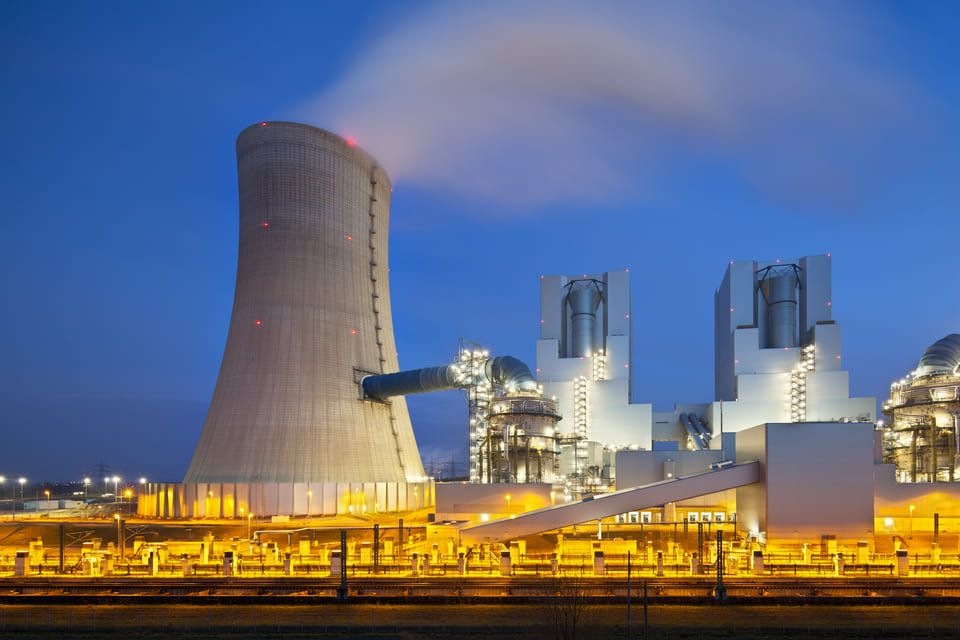Energy audit of a company
Energy audit is an effective tool that allows for reducing energy-related costs and improving energy efficiency in a company.

An energy audit is a process that allows for a detailed analysis and evaluation of energy efficiency in businesses and buildings. It enables the identification of areas where changes can be made to achieve energy savings and improve the performance of installations and equipment.
A. Definition of Energy Audit
An energy audit is a comprehensive analysis of energy efficiency in a company or building, which identifies areas where energy savings can be applied.
This process involves collecting and analyzing data on energy consumption, the efficiency of installations and equipment, evaluating the potential for improving energy efficiency, and indicating the most effective actions and solutions to achieve energy savings and cost reductions.
B. Objectives of Energy Audit
The main objectives of an energy audit are to identify areas where changes can be made to achieve energy savings and improve the performance of installations and equipment. Additionally, an energy audit allows for:
Assessment of energy efficiency in the company or building, Identification of areas where energy efficiency can be improved, Determination of costs associated with implementing changes and the potential savings that can be achieved, Preparation of an action plan and solutions to achieve energy savings.
C. Benefits of Conducting an Energy Audit
Conducting an energy audit brings several benefits to businesses, including:
- Energy savings and cost reductions, Improved efficiency of installations and equipment,
- Increased awareness among employees about energy savings,
- Reduced environmental impact through greenhouse gas emissions reduction,
- Increased organizational revenue through improved energy efficiency.
An energy audit is a highly significant process that enables significant energy savings and improved energy efficiency in businesses.

II. Progress of the Energy Audit
The energy audit consists of several stages that allow for a detailed analysis of energy consumption and the identification of areas where changes can be made to achieve savings.
A. Preparatory Phase
In the preparatory phase, initial analyses and evaluations are conducted to determine the scope of the audit. During this stage, the audit objectives are established, and a preliminary assessment of the technical condition of installations and equipment is made, along with the collection of energy consumption information.
B. Analysis of Energy Consumption and Costs
In the next phase, a detailed analysis of data related to energy consumption and costs is conducted. This involves examining energy bills, evaluating the technical condition of installations and equipment, and conducting performance measurements. This allows for precise identification of areas with energy losses and determining the costs of implementing changes.
C. Assessment of Energy Efficiency
In the subsequent phase, an assessment of energy efficiency is performed. This involves comparing actual energy consumption with the expected consumption based on technical specifications. This enables a precise determination of the efficiency of installations and equipment and whether they require modernization.
D. Proposals for Improvement and Savings Actions
Based on the analyses and evaluations conducted in the previous stages, an assessment of possible improvement and savings actions is carried out. Specific solutions are proposed to improve energy efficiency and reduce costs. These may include installation upgrades, replacement of equipment with more efficient alternatives, or changes in energy use practices.
E. Preparation of the Final Report
The last stage involves preparing the final report, presenting the audit results and proposed improvement and savings actions. The report contains detailed information about energy consumption, costs, and potential savings. This crucial document enables decision-making and the implementation of changes within the company.
The energy audit consists of several stages that allow for a detailed analysis of energy consumption and the identification of areas where changes can be made to achieve savings.
The preparatory phase, analysis of energy consumption and costs, assessment of energy efficiency, proposals for improvement and savings actions, and preparation of the final report are key stages that lead to achieving the objectives of the energy audit.
Thanks to the energy audit, companies can make changes that will contribute to improved energy efficiency and cost reduction.
III. Types of Energy Audits
The energy audit can take various forms and scopes, depending on the needs and objectives of the enterprise. Below are three fundamental types of energy audits:
Preliminary Audit
A preliminary audit is a brief audit conducted to identify potential areas for energy savings and to determine the scope of a detailed audit. This type of audit is often used as the first step in the process of improving energy efficiency and may include a review of technical documentation and facilities, meetings with company management, and interviews with employees. The result of the preliminary audit is a report containing recommendations for future actions.
Detailed Audit
A detailed audit involves a more comprehensive examination of energy consumption and costs within the company. This type of audit involves in-depth investigations of facilities, equipment, and systems to precisely identify areas where energy savings can be achieved. The result of the detailed audit is a report containing detailed recommendations for actions aimed at improving energy efficiency.
Periodic Audit
A periodic audit is an audit carried out regularly to monitor and assess the effectiveness of improvement actions implemented based on the detailed audit. The periodic audit aims to determine whether the changes contribute to energy savings and whether there are still areas where further improvements can be made. The result of the periodic audit is a report containing recommendations for further improvement actions.

IV. Examples of Energy Audit Applications in the Industry
The energy audit is a tool that can be applied in various industrial sectors. Below are several examples of energy audit applications in the industry:
Food Industry
In the food industry, an energy audit can help identify areas where energy can be saved, such as optimizing production processes and using energy from renewable sources.
Chemical Industry
In the chemical industry, an energy audit can identify sources of energy consumption and develop strategies to reduce energy consumption and costs.
Metallurgical Industry
In the metallurgical industry, an energy audit can identify areas where energy savings can be achieved through the optimization of production processes and the modernization of equipment to optimize energy consumption.
Electromechanical Industry
In the electromechanical industry, an energy audit can identify areas where energy consumption can be optimized, such as through equipment modernization and the application of new technologies.
The energy audit is not only a tool for cost reduction but also for improving energy efficiency and adopting a more sustainable production model. With the help of an energy audit, companies can optimize their energy consumption, contributing to reducing CO2 emissions and minimizing their negative impact on the environment.
Order an Energy Audit.
If you want to increase the energy efficiency of your company and reduce energy-related costs, an energy audit is the ideal solution. Conducting an audit allows for a thorough analysis of your company's energy consumption and provides specific improvement and savings actions.
Genergo is an experienced partner that will conduct a comprehensive energy audit tailored to the specific needs of your business. Our offering includes preliminary, detailed, and periodic audits, as well as the preparation of a final report with proposals for enhancing your company's energy efficiency.
With our energy audit, you can achieve significant energy savings and implement changes that improve your company's sustainable development. Join our satisfied clients who have successfully undergone an energy audit with Genergo. Contact us today to learn more!
